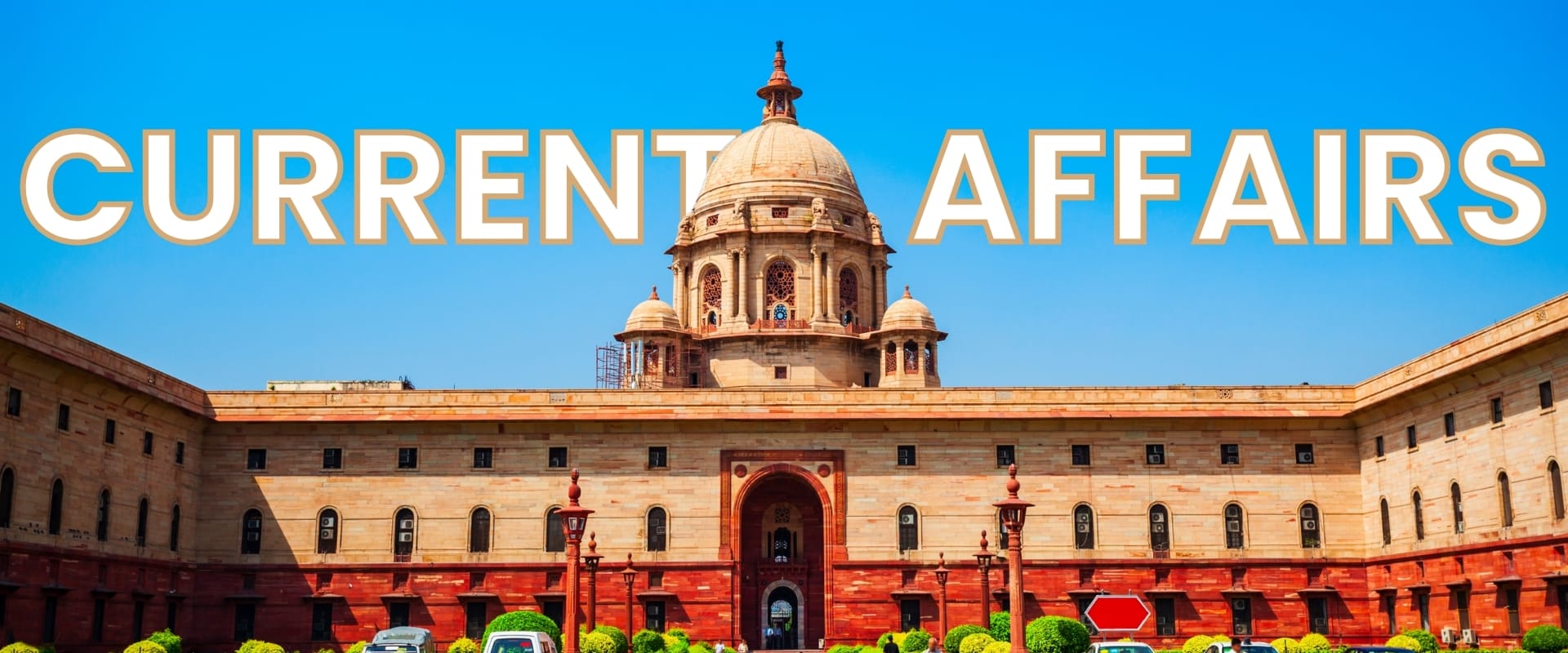The Air Force Common Admission Test (AFCAT), conducted by the Indian Air Force (IAF), is the official gateway for graduates to join the prestigious Flying, Ground Duty (Technical), and Ground Duty (Non-Technical) branches as commissioned officers. The AFCAT 1 2026 exam offers a significant opportunity for young aspirants to secure a respected and exhilarating leadership role in the Indian Air Force. The AFCAT selection process is highly competitive, identifying candidates with the necessary aptitude, intelligence, and officer-like qualities essential for the IAF. Recognizing this importance and the need for focused, high-speed preparation, the Doon Defence Dreamers (DDD) Institute has officially launched the Crash Course for AFCAT 1 2026.
AFCAT 1 2026 Exam Overview
The AFCAT exam will likely take place in 31 Jan 26 (Saturday). Each branch comes with specific AFCAT age limit requirements – flying branch needs candidates between 20-24 years, while ground duty positions welcome applicants between 20-26 years.
- AFCAT Paper (For all candidates): It consists of four main sections: General Awareness, Verbal Ability in English, Numerical Ability, and Reasoning and Military Aptitude Test.
- Total Questions: 100
- Total Marks: 300
- Duration: 2 Hours
- EKT (Engineering Knowledge Test): Candidates applying for Ground Duty (Technical) branches must appear for this 45-minute, 50-question paper immediately after the AFCAT exam.
AFCAT graduates embark on a dynamic career defined by honor, discipline, and technological expertise, transforming into capable leaders and aviators who uphold the highest standards of the military profession.
Exam Dates and Eligibility Criteria
Preparing for the AFCAT 1 2026 exam begins with a clear understanding of the timelines and mandatory requirements. IAF/UPSC decides the official dates, and candidates must adhere strictly to all eligibility rules.
| Milestone | Date / Window | Notes |
| Short & Detailed Notification | 03 November 2025 | Start checking from November; full PDF likely by December 2025 |
| Application Start | 10 November 2025 | Apply online on official portals |
| Application Deadline | 09 December 2025 | Window usually ~30 days |
| Official Notification | 10 November 2025 | Download Now |
| Admit Card | January 2026 | Download from portal |
| AFCAT Exam | January 2026 | 31 Jan 26 (Saturday) |
| Result | To be announced | Typically 3–4 weeks after exam |
| AFSB Interview | March–April 2026 (Tentative) | Schedule allotted post result |
Eligibility Criteria
| Criteria | Requirement |
| Nationality | Indian citizen |
| Age | Flying Branch: 20 to 24 years (as on Jan 1, 2027). Ground Duty: 20 to 26 years (as on Jan 1, 2027). |
| Education | Flying: Graduation (60% marks) with Maths & Physics at 10+2 OR B.E./B.Tech. Technical: 4-year degree in engineering/technology (60% marks). Non-Tech: Graduation (60% marks) in any discipline. |
| Marital Status | Below 25 years: Unmarried. Above 25 years: Married. |
| Medical Standards | As per IAF medical guidelines (vision, height/weight, etc.) |
Overview of AFCAT Exam Pattern and Syllabus
The AFCAT selection process consists of a written examination (AFCAT & EKT) followed by the Air Force Selection Board (AFSB) Interview.
| Paper | Subject | Questions | Maximum Marks | Duration | Marking for Correct Answer | Negative Marking |
| AFCAT | General | 100 | 300 | 2 Hours | 3 Marks | -1 Mark |
| EKT (Technical only) | Specialised | 50 | 150 | 45 Mins | 3 Marks | -1 Mark |
| Total (Non-Technical) | 100 | 300 Marks | ||||
| Total (Technical) | 150 | 450 Marks |
Numerical Ability Paper: Key Topics and Marks Distribution
This paper is generally of a matriculation level, focusing on accuracy and speed. A strong foundation in the following high-weightage topics is crucial:
- Arithmetic: Time & Work, Speed & Distance, Simple & Compound Interest, Ratio & Proportion.
- Basics: Decimals and Fractions, Simplification, Percentage, Averages.
- Advanced: Profit & Loss, Logarithms, HCF/LCM, Trigonometry (basic height & distance).
- Mensuration: Area and Volume of basic 2D and 3D shapes.
General Awareness and English Breakdown
Part A: Verbal Ability in English (Approx. 25 Questions)
This section aims to test the candidate’s understanding of the language, focusing heavily on vocabulary and reading comprehension. Key areas include:
- Vocabulary: Synonyms, Antonyms, One-word Substitutions.
- Grammar: Error Detection, Sentence Completion, Idioms and Phrases.
- Reading: Comprehension, Cloze Test.
Part B: General Awareness, Reasoning, and Aptitude (Approx. 75 Questions)
This is the largest section, covering a broad spectrum of subjects, with a major focus on the following:
| Section | Key Topics |
| General Awareness | History, Geography, Polity, Economics, Basic Science (Physics/Chem/Bio), Current Affairs (Defence-related news). |
| Reasoning | Odd One Out, Analogy, Venn Diagrams, Non-verbal questions (Embedded figures, Dot Situation). |
| Military Aptitude Test | Rotated figures, Hidden figures, Pattern completion. |
3 Months Crash Course for AFCAT 1 2026 at Doon Defence Dreamers?
An intensive study plan, such as a 3 months crash course for AFCAT starting on 10th November 2026 in DDD, is ideal for candidates who have covered their graduation fundamentals or are seeking a focused, disciplined final push. Such a course drastically increases the chances of success by structuring the vast syllabus into manageable, high-yield targets within a short time frame before the February exam.
The Doon Defence Dreamers (DDD) Institute in Dehradun is consistently recognized for its exceptional track record in defence preparation. This is evidenced by the staggering achievement of 710+ students clearing the NDA/NA (II) 2025 written examination, setting a new benchmark in defence coaching. DDD’s focused 3-Month Crash Course for AFCAT 1 2026 begins on 10th November 2026, providing a timely, structured pathway from core concepts to full-length mocks before the February exam.
Benefits of an Intensive Study Plan
- Structured Time Management: Converts the limited days (approx. 7 weeks) into a daily, hourly plan, ensuring balanced coverage of the four diverse sections.
- Targeting High-Weightage Topics Efficiently: Focus shifts to mastering exam-critical areas—especially Reasoning & Aptitude (high scoring) and Current Affairs (crucial for GK)—ensuring higher score returns.
- Constant Evaluation: Daily practice and weekly full-length mock tests provide continuous, quantifiable feedback, allowing for immediate correction of errors and weaknesses under strict AFCAT conditions.
Doon Defence Dreamers legacy of Excellence
DDD’s reputation is built on its expert faculty, unparalleled results, and innovative teaching methods.
- Experienced Faculty: The teaching staff includes a blend of top subject experts and experienced defence background mentors (Ex-IAF/AFSB officers), ensuring students receive both subject mastery and vital insight into the life of an officer and the AFSB testing process.
- Proven Results: DDD consistently produces top results in both written and AFSB phases for all defence aspirants.
- Comprehensive Courses: DDD offers various courses designed for every stage of an aspirant’s journey:
- AFCAT Coaching + AFSB Training
- AFCAT Foundation Course
- SSB/AFSB Training (for AFCAT Qualifiers)
- NDA/CDSE/AFCAT Coaching
DDD’s commitment ensures that the preparation extends beyond the written exam, emphasizing the officer-like qualities needed for AFSB success.
Crash Course for AFCAT 1 2026: Phase-wise Study Plan
Since the exam is usually held in late February, the 3-Month Course converts into an intensive Phase-wise plan covering approximately 7-8 weeks of instruction and practice.
Phase 1: Focus on Core Concepts and High-Scoring Sections (Nov 10 – Dec 1)
This phase must be dedicated to establishing core strength in the two most high-scoring and time-consuming sections: Reasoning and English Vocabulary/Grammar.
- Reasoning & Aptitude: Master all non-verbal patterns, Venn Diagrams, and Military Aptitude topics. Allocate 2 hours daily for clarity and speed practice.
- English: Focus on mastering Vocabulary (Synonyms/Antonyms) through flashcards and dedicated reading. Cover high-yield Grammar rules. Allocate 1.5 hours daily.
- Numerical Ability: Master the fundamentals of Arithmetic (Time, Speed, Interest) and Simplification up to the 10th-grade level. Allocate 1 hour daily.
Phase 2: General Awareness, Speed, and Practice (Dec 1- Dec 25)
With the foundation set, the focus shifts to maximizing the General Awareness score and integrating full-paper practice.
- General Awareness (GK): Dedicate time to Static GK (History/Polity/Science) and intensive tracking of Current Events from the last 6-8 months, especially those related to defence, geography, and important appointments.
- Numerical Ability: Practice advanced topics like Mensuration and basic Trigonometry.
- Full-Length Mocks: Start taking two full-length AFCAT mock tests per week. Analyze the results immediately to identify and prioritize weak areas across all four subjects.
Phase 3: Revision, Mock Tests, and Final Strategy (Dec 26 – Exam Date)
The final week is purely for consolidation, speed, accuracy, and developing an effective exam-taking strategy.
- Revision: The majority of time should be spent revising short notes, formulas, and GK facts. Focus on the most common mistake areas identified in the mock tests.
- Mock Test Marathon: Increase the frequency to 4-5 full-length mock tests in the final week. Analyze the results to refine time management and identify the optimal question-solving order.
- Time Management Drill: Practice solving the 100-question paper within the 2-hour limit, focusing on maintaining composure and accuracy under pressure, especially in the Aptitude section.
Essential Study Material
Recommended Books and Online Resources for AFCAT
- NCERT Textbooks (9th to 10th): The fundamental resource for basic Science and Math concepts.
- Objective Problem Books: For Numerical Ability, dedicated objective practice books are essential for speed and variety.
- DDD Study Material: The structured and exam-focused study packages provided by Doon Defence Dreamers, tailored to the latest IAF AFCAT patterns, are invaluable for targeted, high-yield preparation.
Importance of Previous Year Question Papers and Mock Tests
Previous Year Question Papers (PYQs) are non-negotiable. They reveal the IAF’s question-setting patterns, the frequency of topics (especially in Reasoning), and the depth of knowledge required for each section. Mock Tests are the ultimate tool for practicing time management and identifying a candidate’s peak performance strategy. Regular mock tests are a core part of the DDD curriculum, simulating the real exam to build confidence and endurance.
DDD Tips and Tricks For AFCAT 1 2026
Effective Time Management Techniques
- Prioritize: Attack the high-scoring Reasoning and English sections first to quickly secure a maximum number of marks. Dedicate the last 30 minutes to GK and the longer Numerical Ability questions.
- Dedicated Slotting: Allocate fixed, non-negotiable daily slots for Vocabulary building, Reasoning practice, Numerical Ability, and GK memorization. DDD encourages the use of a daily timetable with clear, measurable targets.
- 2-Hour Simulation: Always solve mock tests for the AFCAT paper in a single, uninterrupted 2-hour block, mimicking the actual exam timing.
Handling Negative Marking and Exam Stress
The AFCAT exam has a significant negative marking system (-1 Mark for every incorrect answer, where a correct answer fetches 3 marks), which can severely impact the final score.
- Strategy for Negative Marking: Prioritize accuracy over attempts. It is better to leave a question unanswered than to risk losing 1/3 of the marks. DDD trainers guide students on an optimal attempt range (usually 75-85 questions) to clear both sectional and overall cut-offs.
- Managing Exam Stress: The path to being an officer is a test of mental resilience. Regular physical training (PT) and maintaining a disciplined routine, a key feature of the DDD residential program, are crucial for stress management. A calm, well-rested mind performs significantly better on the examination day.
Frequently Asked Questions (FAQs)?
Q. What is the expected minimum cut-off a candidate must secure to clear the AFCAT 1 2026 written exam and be eligible for the AFSB Interview?
The cut-off for the AFCAT written exam typically varies, but historically it hovers between 150 to 170 marks out of 300. Candidates must aim to score well above this threshold (ideally 190+) to ensure a safe passage. Importantly, there is no sectional cut-off, meaning the overall score is what matters, though a high score in the entire paper is crucial for final selection.
Q. Is the Engineering Knowledge Test (EKT) mandatory for all candidates appearing for the AFCAT 1 2026 exam?
No, the Engineering Knowledge Test (EKT) is only mandatory for candidates applying for the Ground Duty (Technical) branches. Candidates applying for the Flying Branch and Ground Duty (Non-Technical) branches are exempted from the EKT and only need to appear for the main AFCAT paper.
Q. How is the negative marking structured in the AFCAT written exam, and what is the best strategy to handle it?
The AFCAT uses a 3:1 marking ratio: +3 marks for every correct answer and -1 mark for every incorrect answer. This structure makes negative marking highly detrimental. The best strategy is to prioritize certainty: attempt questions only when you are highly sure of the answer, and avoid blind guessing, as leaving a question blank is better than losing one mark.
Q. What is the main benefit of focusing on the Reasoning and Verbal Ability sections during the crash course for AFCAT 1 2026?
The Reasoning and Verbal Ability sections are considered high-scoring and less time-consuming than Numerical Ability or vast General Awareness. Mastering these two sections allows a candidate to maximize their score with the highest return on time invested. They are crucial for hitting the high cut-off mark, making them the strategic priority during the intense crash course.





























